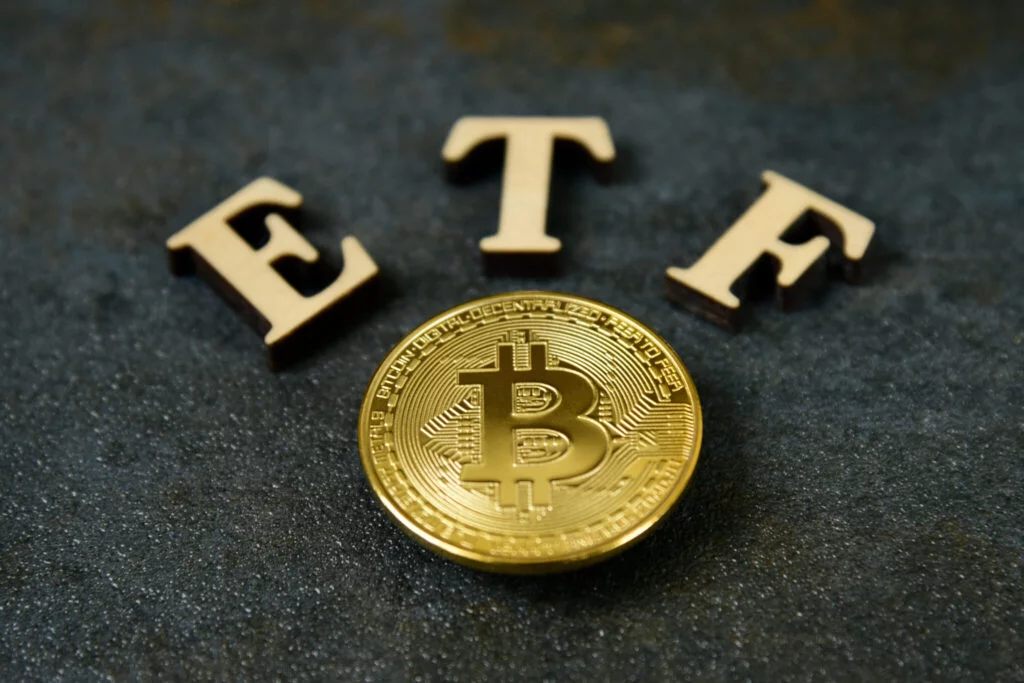US Bitcoin ETFs See Continued Positive Flow, While Ethereum Funds Struggle
21.08.2024 17:00 1 min. read Alexander Stefanov
On Tuesday, U.S. Bitcoin exchange-traded funds (ETFs) saw a notable influx, with $88.06 million in net inflows.
This marks the fourth straight day of gains for these funds. The top performer was BlackRock’s IBIT, which attracted $55.43 million. Ark Invest and 21Shares’ ARKB also saw significant investments, receiving $51.91 million.
Conversely, Grayscale’s GBTC experienced the largest outflow, losing $12.81 million, with Bitwise’s BITB following with $6.47 million in outflows. Other ETFs, including those from Fidelity and VanEck, reported no changes in their net flows.
The total trading volume for these Bitcoin ETFs was $1.35 billion on Tuesday, a rise from $779 million the previous day but still below the $5 to $8 billion range observed earlier this year. Since their introduction, these ETFs have gathered $17.52 billion in net inflows.
In contrast, spot ether ETFs faced a challenging day, with a total of $6.49 million in outflows. This was their fourth consecutive day of negative flows. Grayscale’s ETHE saw the largest decrease at $36.99 million, while BlackRock’s ETHA and Bitwise’s ETHW saw modest inflows of $26.77 million and $3.73 million, respectively.
Trading volume for ether ETFs reached $194.66 million, down from the $900 million to $1 billion range seen in their debut week. Overall, these ether funds have experienced $440.11 million in net outflows to date.
-
1
Strategy Claims It Can Weather a Bitcoin Crash to $20K Without Trouble
16.07.2025 14:08 1 min. read -
2
Peter Schiff Warns of Dollar Collapse, Questions Bitcoin Scarcity Model
12.07.2025 20:00 1 min. read -
3
Corporate Bitcoin Adoption Soars: 125 Public Companies Now Hold BTC
16.07.2025 20:00 2 min. read -
4
Bitcoin ETFs See $1B Inflow as IBIT Smashes Global AUM record
11.07.2025 21:00 1 min. read -
5
Bitcoin Reaches $119,000 Milestone as Corporate Demand and ETF Inflows Rise
13.07.2025 17:45 2 min. read
Where Is The Smart Entry Point For Bitcoin Bulls?
With Bitcoin hovering near $119,000, traders are weighing their next move carefully. The question dominating the market now is simple: Buy the dip or wait for a cleaner setup?
Matrixport Warns of Bitcoin Dip After Hitting This Target
Bitcoin has officially reached the $116,000 milestone, a level previously forecasted by crypto services firm Matrixport using its proprietary seasonal modeling.
Bitcoin Risk Cycle Flips Again as Market Enters Safer Zone
Bitcoin’s market signal has officially shifted back into a low-risk phase, according to a new chart shared by Bitcoin Vector in collaboration with Glassnode and Swissblock.
Robert Kiyosaki Warns of 1929-Style Crash, Urges Bitcoin Hedge
Financial author Robert Kiyosaki is once again sounding the alarm on America’s economic health.
-
1
Strategy Claims It Can Weather a Bitcoin Crash to $20K Without Trouble
16.07.2025 14:08 1 min. read -
2
Peter Schiff Warns of Dollar Collapse, Questions Bitcoin Scarcity Model
12.07.2025 20:00 1 min. read -
3
Corporate Bitcoin Adoption Soars: 125 Public Companies Now Hold BTC
16.07.2025 20:00 2 min. read -
4
Bitcoin ETFs See $1B Inflow as IBIT Smashes Global AUM record
11.07.2025 21:00 1 min. read -
5
Bitcoin Reaches $119,000 Milestone as Corporate Demand and ETF Inflows Rise
13.07.2025 17:45 2 min. read


